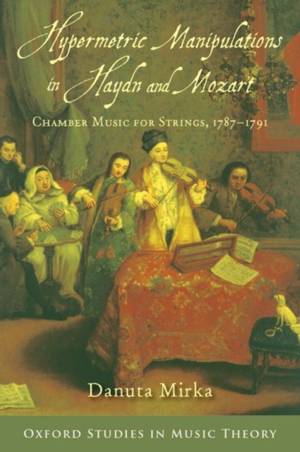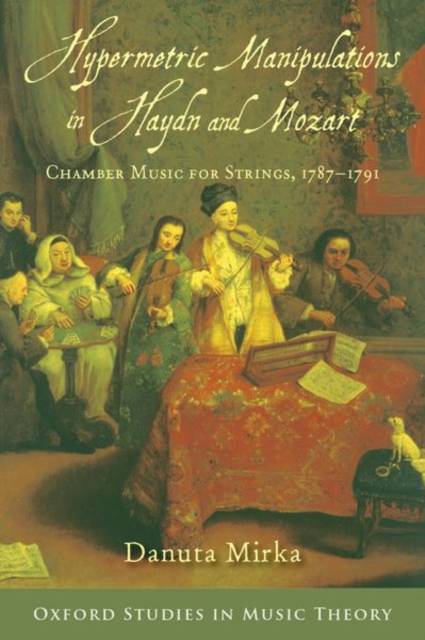
Je cadeautjes zeker op tijd in huis hebben voor de feestdagen? Kom langs in onze winkels en vind het perfecte geschenk!
- Afhalen na 1 uur in een winkel met voorraad
- Gratis thuislevering in België vanaf € 30
- Ruim aanbod met 7 miljoen producten
Je cadeautjes zeker op tijd in huis hebben voor de feestdagen? Kom langs in onze winkels en vind het perfecte geschenk!
- Afhalen na 1 uur in een winkel met voorraad
- Gratis thuislevering in België vanaf € 30
- Ruim aanbod met 7 miljoen producten
Zoeken
€ 217,95
+ 435 punten
Omschrijving
For the past four decades, the concept of hypermeter has been routinely applied to eighteenth-century music. But was this concept familiar in the eighteenth century? If so, how is it reflected in writings of eighteenth-century music theorists? And how does it relate to their discussion of phrase structure? In this book, a follow-up to the award-winning Metric Manipulations in Haydn and Mozart, author Danuta Mirka unearthes a number of cues that point to eighteenth-century recognition of what today is called hypermeter, and retraces the line of tradition that led from eighteenth-century music theory to the emergence of the modern concept of hypermeter in the twentieth century. Mirka describes the proto-theory of hypermeter developed by German music theorists, recounts the recent history of this concept in American music theory, evaluates contributions made to it by authors working within different theoretical traditions, and introduces a dynamic model of hypermeter which allows the analyst to trace the effect of hypermetric manipulations in real time. This model is applied in analyses of Haydn's and Mozart's chamber music for strings, which shed a new light upon this celebrated repertoire, but the aim of this book goes far beyond an analytical survey of specific compositions. Rather, it is to offer a systematic classification of hypermetrical irregularities in relation to phrase structure and to give a comprehensive account of the ways in which phrase structure and hypermeter were described by eighteenth-century music theorists, conceived by eighteenth-century composers, and perceived by eighteenth-century listeners.
Specificaties
Betrokkenen
- Auteur(s):
- Uitgeverij:
Inhoud
- Aantal bladzijden:
- 408
- Taal:
- Engels
- Reeks:
Eigenschappen
- Productcode (EAN):
- 9780197548905
- Verschijningsdatum:
- 28/06/2021
- Uitvoering:
- Hardcover
- Formaat:
- Genaaid
- Afmetingen:
- 152 mm x 236 mm
- Gewicht:
- 739 g

Alleen bij Standaard Boekhandel
+ 435 punten op je klantenkaart van Standaard Boekhandel
Beoordelingen
We publiceren alleen reviews die voldoen aan de voorwaarden voor reviews. Bekijk onze voorwaarden voor reviews.









